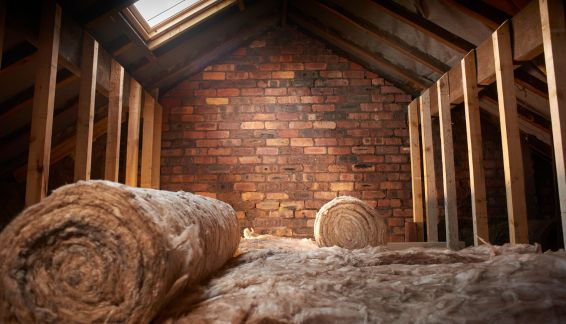Often struggling with the increasing cost of living, Pensioners have a valuable resource frequently overlooked: the Energy Company Obligation (ECO) Scheme.
This scheme offers loft insulation grants specifically tailored for pensioners, providing a practical solution to reduce energy bills and enhance home comfort.

This blog post will explore these grants’ eligibility criteria and application process, offering pensioners a pathway to improved energy efficiency and financial relief.
Do Pensioners Qualify For Energy-Saving Grants?
Pensioners can access free energy-saving grants, most notably through the Government’s Energy Company Obligation (ECO) scheme. This opportunity is available to many pensioners through receiving Pension Credit or meeting specific health issues or vulnerability criteria.
There’s a strong encouragement for pensioners and their families to explore eligibility for heating and heating insulation grants.
The ECO scheme, a government-backed initiative with a budget of £4 billion, aims to enhance homes across the UK. It includes grants for various home improvements, such as loft, underfloor, or wall insulation, and also covers the repair, replacement, or installation of energy-efficient heating systems.
Designed to reduce energy bills for the lowest-income households in England, Scotland, and Wales, the scheme improves heating efficiency. It contributes to reducing carbon emissions, aiding the fight against climate change.
Pensioners who claim Pension Credit (either Guarantee Element or Savings Credit) are typically fast-tracked within the scheme. However, many pensioners can qualify for these heating grants based on ‘health,’ ‘vulnerability,’ or ‘income-based’ criteria, even if they do not claim specific benefits.
Types Of Grants For Pensioners
Pensioners can access various grants to enhance their home heating and insulation systems. These include:
- Heating upgrade grants: These are specifically for those with outdated or inefficient heating systems. Additionally, there’s assistance for the complete installation of central heating, including fitting radiators, but this is only applicable if the property has never had central heating before.
- Insulation grants: These are designed for individuals interested in installing loft insulation, underfloor, or wall insulation to improve energy efficiency.
- Smart thermostat grants: In certain areas, grants are available for installing smart thermostats. These advanced devices enable pensioners to control their heating remotely through various devices, aiding in better management of energy consumption.
These heating grants for pensioners are part of efforts to enhance living conditions while promoting energy efficiency and cost savings.
How Do Pensioners Qualify For These Grants?
To qualify for free energy-saving measures, including loft insulation grants, as a pensioner under the ECO (Energy Company Obligation) grants, there are three main criteria to be met:
1: Property Eligibility
Your residence must be considered inefficient, typically holding an EPC (Energy Performance Certificate) rating of E, F, or G. There’s an expectation that properties with a D rating may be included later in the scheme.
If you don’t have an EPC, obtaining one independently is unnecessary, as installers will conduct a free energy assessment and arrange the EPC.
2: Household Eligibility
You or someone in your household must meet certain conditions. These include receiving benefits, having a health condition, being classed as vulnerable, or having an annual household income below £31,000.
3: Grant Suitability and Availability
Beyond the property and household eligibility, suitable grants must be available for the specific home improvements needed. The government, with administration by Ofgem, sets various rules governing this. A free grant checker can help determine which grants you may be eligible for, including those for loft insulation.
Qualifying for Heating Grants as a Pensioner Through Benefits:
Pensioners who receive certain benefits automatically qualify for the Energy Company Obligation (ECO) scheme without consideration of their household income or assets. These benefits include:
- Child Tax Credit
- Income-Based Employment and Support Allowance (ESA)
- Housing Benefit
- Income Support
- Income-Based Jobseeker’s Allowance (JSA)
- Pension Guarantee Credit
- Pension Savings Credit
- Both Child Tax Credit and Working Tax Credit
- Universal Credit
- Working Tax Credit
When assessing your household income for eligibility, it’s essential to include all sources, such as state pension, pension income, and various state benefits, including guarantee credit, pension credit, or savings credit. However, winter fuel and cold weather payments are not counted in this income.
The criteria for those not claiming benefits can vary, as they are determined by local authorities under their flexible energy rules, often referred to as LA Flex.
If your household income is less than £25,000 per year and you do not claim benefits, you might still be eligible for these grants. An eligibility checker can provide clarity on this.
The ECO scheme offers various improvements, from new boilers to upgrading electric room heaters, electric storage heaters, insulation, and draught proofing, catering to a range of needs for pensioners.
What Are the Potential Savings for Pensioners from Upgrading Heating Systems or Installing Insulation?
Many pensioners in the UK struggle with cold homes due to the high cost of upgrading heating systems or installing insulation. However, loft insulation grants available to pensioners can significantly reduce these costs, though the exact savings depend on several factors:
- The size of the property.
- The construction of the property.
- The current heating system in the property.
- The existing insulation in the property.
When applying for a grant, pensioners typically receive an approximate estimate of the potential savings from the upgrade. Additionally, checking the property’s Energy Performance Certificate (EPC) can provide average energy savings estimates.
With their expertise, installers can also offer insights into the expected impact of such upgrades on energy costs.
Why is it important to take advantage of these grants?
The importance of seizing the opportunity to access loft insulation grants for pensioners must be balanced, as these grants are not a permanent fixture.
Delaying or missing the application deadline could mean missing out on these benefits altogether, especially if the rules of the scheme change.
- Administered by Ofgem on behalf of the government, these grants aim to enhance the energy efficiency of UK homes and aid in reducing carbon emissions.
- Although the scheme is set to run until 31 March 2026, the regulations and funding provisions could be altered at any time.
- While there’s no limit to the number of different grants you can apply for or the number of times your home is eligible, using the same upgrade more than once is not permitted.
- The application process is straightforward and quick, enabling pensioners to quickly check their eligibility for these government-backed grants.
Conclusion
In conclusion, the Energy Company Obligation (ECO) scheme, particularly the loft insulation grants for pensioners, presents a valuable opportunity for the elderly population in the UK to improve their living conditions.
These grants offer a practical solution for those struggling with inefficient heating systems or inadequate insulation, which can lead to significant energy savings and a more comfortable home environment.
By improving energy efficiency and reducing carbon emissions, these grants not only aid individual households but also contribute positively to the broader environmental goals of the UK.
Therefore, pensioners and their families are encouraged to explore these opportunities, ensuring they don’t miss out on the support available to them.


